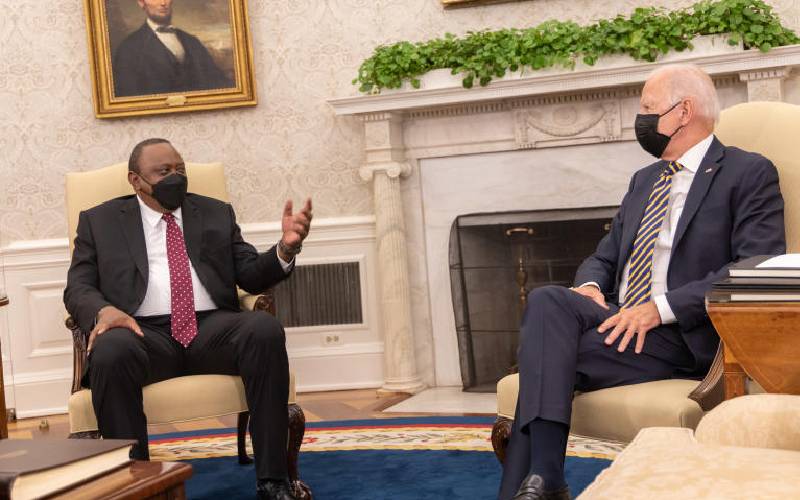×
The Standard e-Paper
Join Thousands Daily

President Uhuru Kenyatta chats with his American counterpart Joe Biden when he was hosted at the White House in Washington DC. [Courtesy]
President Uhuru Kenyatta took the opportunity of being the first African Head of State to meet US President Joe Biden to highlight Covid-19 vaccine inequality perpetuated by western nationalism.